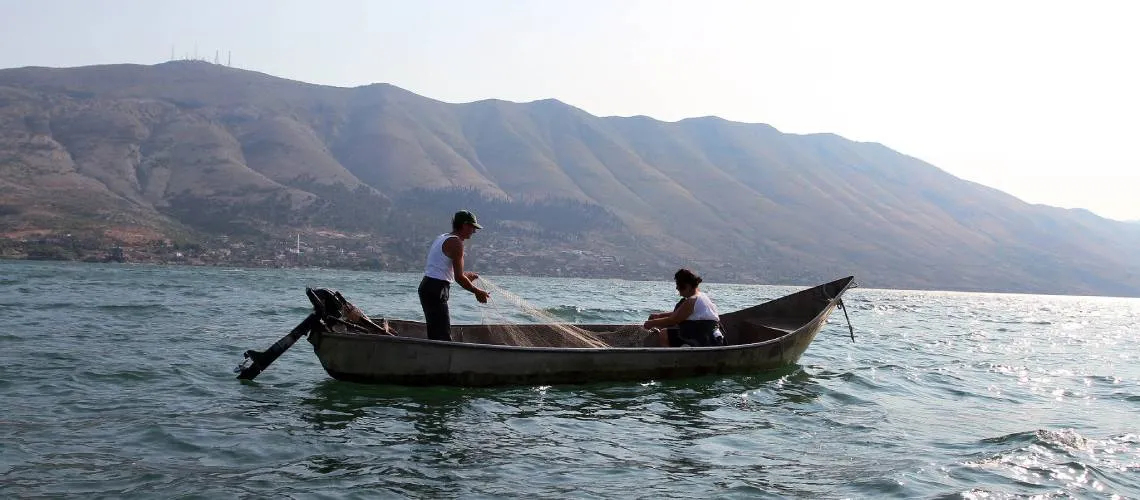L'eau ne connaît pas de frontières : La coopération transfrontalière est essentielle pour assurer la sécurité de l'eau et éviter les conflits
Posté le : 10 juillet 2023 (Blog)

Alors que la pression sur les ressources mondiales en eau douce s'accroît, une coopération internationale plus étroite est nécessaire pour gérer les rivières, les aquifères et les lacs partagés par tous. Depuis des décennies, le Groupe de la Banque mondiale soutient des programmes visant à favoriser la coopération dans le domaine de l'eau afin d'assurer la sécurité de l'eau pour tous et de soutenir le développement durable et la création d'emplois. Aujourd'hui, le changement climatique et la demande croissante de ressources en eau limitées rendent la gestion proactive de ces eaux transfrontalières à la fois plus complexe et plus urgente.
Dans le contexte d'énormes défis mondiaux, la Banque mondiale prend des mesures déterminées pour devenir plus agile et innovante - y compris dans la façon dont elle aide les pays à gérer leur dépendance mutuelle à l'égard des eaux partagées. Cette semaine, nous organisons un atelier international à Washington, D.C., pour écouter, apprendre et repenser la manière d'aider nos pays clients à coopérer sur leurs eaux transfrontalières.
Plus de la moitié de la population mondiale vit dans des bassins fluviaux et lacustres transfrontaliers qui, avec les aquifères, représentent environ 60 % des flux d'eau douce. Cependant, les bassins fluviaux et lacustres transfrontaliers ne sont pas les seuls à être concernés, Plus de la moitié des 310 bassins fluviaux internationaux du monde, et tous les aquifères transfrontaliers sauf cinq, ne font pas l'objet d'accords de coopération intergouvernementaux. Et il ne s'agit pas seulement de frontières internationales : les ressources en eau douce ne sont pas seulement partagées entre les pays, mais aussi à l'intérieur des pays, ce qui ajoute à la complexité de la gouvernance de l'eau.
Il faut s'attaquer à ce problème si nous voulons atténuer les risques croissants qui pèsent sur la sécurité de l'eau, notamment le changement climatique, la croissance démographique et l'utilisation non durable de l'eau.
Les problèmes d'approvisionnement en eau exacerbent l'insécurité alimentaire, l'appauvrissement de la biodiversité et compromettent le développement humain. Sur la base de la trajectoire actuelle, 700 millions de personnes risquent d'être déplacées par la sécheresse d'ici à 2030. Et d'ici 2050, la population vivant dans des bassins transfrontaliers soumis au stress hydrique pourrait doubler. Les sécheresses peuvent affecter la santé, la richesse et le niveau d'éducation sur plusieurs générations, avec des effets prononcés sur les femmes et les filles.
De tels défis conduisent certains à penser que les eaux transfrontalières deviendront une source croissante de conflits au cours de ce siècle. C'est certain, De nombreux points chauds de conflit dans le monde sont également soumis au stress hydrique et dépendent, au moins en partie, des eaux transfrontalières. Cependant, l'histoire nous apprend que l'eau partagée peut également être une source importante de coopération. Les grands fleuves internationaux ont suscité une collaboration importante entre les pays qui partagent leurs eaux, même si ces relations doivent être entretenues en permanence. Une gestion plus efficace des eaux transfrontalières favorise le développement durable dans toute une série de secteurs.
Le point commun des exemples les plus réussis de coopération transfrontalière dans le domaine de l'eau est que les investissements partagés conduisent à des bénéfices partagés. Dans le bassin du Sénégal, par exemple, les projets hydroélectriques partagés génèrent de l'électricité et des revenus partagés. Dans le Danube, la gestion partagée du fleuve a permis un transport durable et une amélioration de la qualité de l'eau le long du fleuve et dans la mer Noire.
Pour que le monde adopte la coopération et prévienne les conflits autour des eaux transfrontalières, nous devons trouver le moyen d'investir davantage - et de manière plus créative - dans les eaux partagées.
Depuis plus de six décennies, le Groupe de la Banque mondiale travaille en partenariat avec des gouvernements, des agences techniques, des donateurs et des organisations de la société civile pour concevoir, financer et mettre en œuvre des programmes de soutien à la coopération et au développement dans le domaine des eaux transfrontalières. Outre la fourniture d'une expertise technique, la Banque mondiale a mobilisé plus de $25 milliards d'investissements pour de telles initiatives au cours des seules 20 dernières années.
Les engagements de la Banque mondiale sur les eaux transfrontalières au fil des ans ont montré l'importance de travailler avec des partenaires d'une manière qui se renforce mutuellement pour promouvoir la coopération. Et nous tirons les leçons de l'expérience passée : par exemple, les efforts récents donnent la priorité à l'interaction entre l'atténuation du changement climatique et l'adaptation, le genre et l'inclusion sociale, la prévention des conflits et la conservation de la biodiversité, afin d'amplifier l'impact de nos engagements.
Cette semaine, nous nous demandons comment faire plus et mieux. Que peut faire la communauté internationale pour mieux comprendre les problèmes, identifier les solutions potentielles et promouvoir une meilleure collaboration dans les eaux transfrontalières ?
Nous pensons qu'une plus grande coordination est possible et impérative pour garantir la sécurité de l'eau pour tous, et nous sommes prêts à y contribuer. Création d'un mécanisme mondial de coopération transfrontalière dans le domaine de l'eau dans le cadre de la Partenariat mondial pour la sécurité de l'eau et l'assainissement (GWSP) est un pas dans cette direction.


